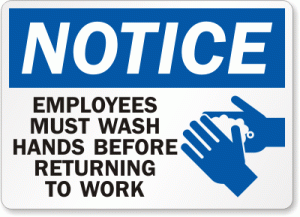“…Done correctly, a (restaurant) cook leaves the line, washes his hands, enters a walk-in and dons a clean apron and gloves. He then assembles the  pizza on a manufactured crust using tongs and a ladle set aside for that item. Once baked, the pizza is cut with a specific knife on a clean cutting board…He recently had his third-party toppings maker rework its recipes to ensure they were gluten-free…”
pizza on a manufactured crust using tongs and a ladle set aside for that item. Once baked, the pizza is cut with a specific knife on a clean cutting board…He recently had his third-party toppings maker rework its recipes to ensure they were gluten-free…”
Many restaurant chains are instituting rigorous policies for preparing and serving gluten-free offerings as awareness of gluten allergies and intolerance rises.
And while several operators said only about 1 percent to 3 percent of customers request gluten-free items, all insisted that taking extra effort to make such foods safely is good for business — and will keep them in compliance with upcoming mandates from the Food and Drug Administration.
At 60-unit Costa Vida, gluten-free corn tortillas are cooked first thing in morning so the comal can be sanitized and readied for flour tortillas. Corn tortillas are then stored in a closed container and opened only when necessary.
For more: http://nrn.com/health-amp-nutrition/restaurants-tighten-gluten-free-operations








